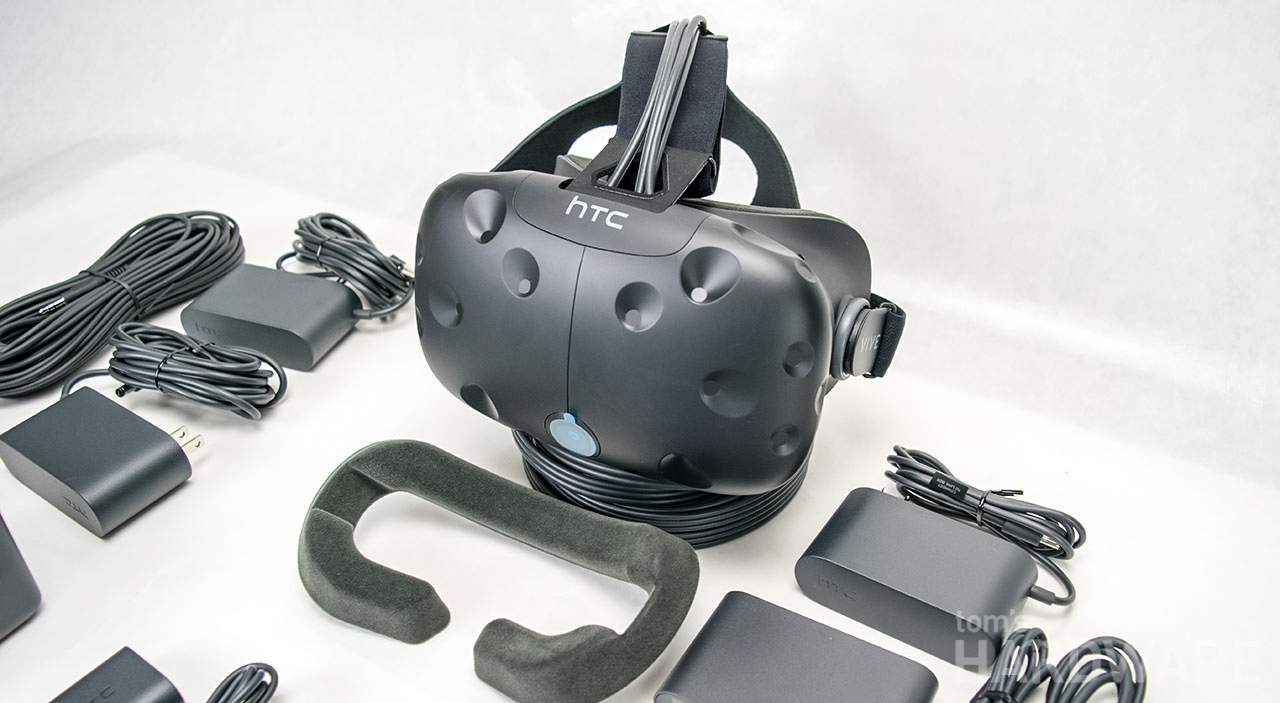Could Palmer Luckey Return To VR Via HTC Vive?
Get Tom's Hardware's best news and in-depth reviews, straight to your inbox.
You are now subscribed
Your newsletter sign-up was successful
A report that HTC Corp. was “exploring strategic options” to help save the company from its financial troubles, including the sale of the smartphone business, the VR business, or the entire company, kicked off a series of rumors about what might happen with HTC. Theories ranged from the plausible (Google could make a play) to the seemingly ludicrous (Palmer Luckey might buy the HTC Vive wing).
Yesterday, HTC halted trades of its stock pending a major announcement, which fueled speculation. The big announcement came late on the evening of September 21, and it was a mite confusing: Nobody was buying any part of HTC. Instead, Google and HTC struck a strategic partnership that involves Google getting access to HTC IP and a handful of the employees who helped develop Google's Pixel smartphones. In exchange for its assets, HTC would receive $1.1 billion in cash from Google, which it desperately needs.
Two VR Pioneers
HTC has lost money for four quarters in a row, and it’s been on a steady slope downwards for several years. In 2015, HTC’s stock plummeted by 60%, which left the company’s assets effectively worthless, with investors valuing the corporation at less than the cash it had in the bank. However, the Vive VR system is one of the few things that HTC has going for it. Indeed, in early 2016, before HTC released the Vive headset, HTC CEO Cher Wang told The Telegraph that VR is more important to the company’s future than its smartphone business.
Shortly after the launch of the Vive headset, HTC created a subsidiary called HTC Vive Tech Corp to keep the company’s smartphone and VR businesses separated and protect the Vive brand from HTC's smartphone failings.
The cash influx from Google should enable HTC to stay afloat while it weathers the storm of being a pioneer in the consumer VR market. Even so, it seems that HTC's finances are still somewhat tenuous, and now that it's clear Google didn't snap up the Vive wing of the business--which would have made some sense given the company's significant investment in VR (Cardboard, Daydream, etc.)--there may be other potential suitors dreaming big VR dreams.
Enter Palmer Luckey.
Shortly after news broke that HTC could be considering offloading part of its business, he asked the community in the /r/Vive subreddit for their collective opinions on the notion of him purchasing the HTC Vive business.
Get Tom's Hardware's best news and in-depth reviews, straight to your inbox.
More recently, Luckey tweeted that he would be on stage speaking about the HTC Vive at the Tokyo Games show, which he thinks “people will find interesting.”
The thought of the ousted founder of Oculus making a return to the VR industry by way of purchasing its closest competitor is a little far fetched, and it's true that Luckey has a history of being somewhat of a troll, but it's nevertheless an intriguing notion. Luckey made off with a vast fortune when he sold Oculus to Facebook, which makes him one of the few private individuals who could (or would want to) potentially raise the capital to buy HTC’s Vive division.
Could He Even Afford It?
Luckey’s net worth is largely tied to Facebook stock, but there should be no reason he couldn’t sell that stock to access the capital if he needed it. Now that he’s no longer part of Oculus, he can use that fortune to do anything he wishes, but if his passion still lies in virtual reality technology (and why wouldn’t it?), Vive is the juiciest target.
It’s unlikely that Luckey could buy the Vive business outright, and now that it's armed with some of Google's cash, HTC likely won't be interested in letting go of the VR wing of its business--but that doesn't mean the company wouldn't be opposed to cutting a deal with an enthusiastic investor.
Luckey and his partners sold Oculus to Facebook in 2014 for a staggering amount of money. At the time, it was widely reported that Facebook paid $2 billion for the company, but during the recent Zenimax vs. Oculus lawsuit, Mark Zuckerberg revealed that Facebook paid closer to $3 billion after employee retention packages and goal targets. Luckey’s portion of the deal was never publicly disclosed, but Forbes pegged Luckey’s net worth at $700 million in 2015 and $730 million in 2016. Luckey took a personal hit of $50 million from the Zenimax vs. Oculus judgement, but Facebook’s stock is up more $40 per share since October 2016, so Luckey’s net worth should still be on the rise. If HTC were open to it, Luckey could easily cut a big check to buy his way into the company.
This is all speculative, but Luckey himself is the one fanning the flames, so perhaps he lies awake at night thinking seriously about a triumphant return to VR relevance.
Kevin Carbotte is a contributing writer for Tom's Hardware who primarily covers VR and AR hardware. He has been writing for us for more than four years.
